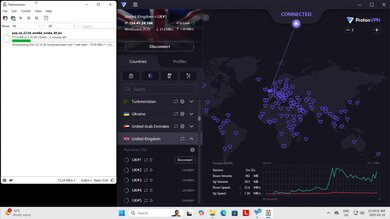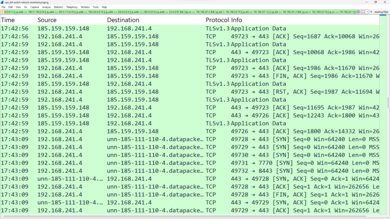- Table of Contents
- Intro
- Best VPN
- Best Features
- Best Free
- Notable Mentions
- Recent Updates
- All Reviews
- Comments

There seems to be an endless number of VPN (virtual private network) services available these days, and it can certainly be a headache to decide between them. Some of them boast unique features and come bundled with different services or sometimes an entire antivirus suite, while your favorite YouTuber or podcaster might have advertised others. VPNs can be useful in some instances, like preventing your ISP (internet service provider) from seeing your online activities, bypassing geo-restrictions and censorship in your country, or as an extra layer of security when connecting to an untrusted Wi-Fi network. If you want to learn more about the limitations of VPNs and how they work, or if you even need one, check out our article on VPN privacy.
But how do we test VPNs? Our team of experts evaluates each VPN using the same standardized test bench to ensure fair and unbiased product comparisons. We subscribe to every service we test with our money and have complete editorial independence. See how we test VPNs and judge for yourself.
We've tested 20 of the best VPNs on the market, and our picks are below. If you want to learn more about kill switches, check out our R&D article. Or, if you want to see which free options we recommend, check out our article on the best free VPNs.
-
Best VPN
Torrent9.1Performance Usages: Security8.6Speed8.6Mullvad is the best virtual private network we've tested. It has a great reputation online for its strong privacy practices, transparency, and ethical stance on digital rights. Mullvad has a rather unique registration process. Instead of creating an account with your email address and password, you're assigned a randomly generated account number, which is the only thing you use to log in. This is a secure practice since Mullvad won't have any information to identify you in case of a data breach. If you're particularly paranoid, you can use several anonymous payment methods, like cryptocurrencies and cash. Speaking of payments, Mullvad is one of the cheapest VPNs with a flat-rate pricing model; it's €5 (~$5 USD) per month, no matter how long you subscribe.
Underneath the straightforward and easy-to-use UI, there's some great underlying technology. It keeps your IP address hidden from third parties like your ISP and has measures to protect you from bad actors when you're on public Wi-Fi at a cafe or the airport. It also has some of the best performance we've seen, with consistently great speed and latency, so your downloads will be speedy and stable. On top of that, it sports some additional handy features: Obfuscation can help you get around censors that block access to websites and services that disallow VPNs, and DAITA (defense against AI-guided traffic analysis) that makes it harder for third parties to find identifiable patterns in your encrypted traffic. One of Mullvad's biggest downsides is that it doesn't support port-forwarding, which could be a dealbreaker if you need that functionality. If you need a VPN with port-forwarding, check out our pick below.
-
Best VPN With More Features
Torrent8.7Performance Usages: Security8.6Speed8.4Proton VPN is your next best bet if you need even more features than our top pick. Like Mullvad, Proton has a good reputation for its privacy practices and transparency, for the most part. This VPN also has a few more convenient features than our top pick. You can connect up to 10 devices simultaneously, and there are servers in over 100 countries, which is useful since it lets you connect to a server closer to you for a better connection. On top of that, you can configure port forwarding, an essential feature for some who need it for specific applications like game servers or P2P clients. Additionally, like Mullvad, it has obfuscation to make it look like you're not using a VPN, an adblocker, and 'secure-core,' a feature that ensures your connection goes through Proton's own servers before reaching the server in the country you choose.
Proton VPN still isn't perfect, though. Its latency performance is disappointing, so your connection won't feel as snappy, and will affect some activities like gaming. If you pay monthly, it's much more expensive than Mullvad, but it's a few bucks cheaper if you buy a one-year or two-year subscription. It's a good pick if you need those extra features, but if you don't (or don't know), you're better off going with Mullvad.
-
Best Free VPN
Torrent8.3Performance Usages: Security6.2Speed7.2Hotspot Shield Free is the best free VPN we've tested. You can download the client from their site and start using it without creating an account. This means there's no data associated with your IP address when you download or use the software. It also has no data limits and delivers decent speeds using Wireguard, although its speeds are limited to around 100Mbps. You can technically have it installed and connected on as many devices as you want because it doesn't identify you or your devices with a login. Unfortunately, its kill switch doesn't work properly, meaning it leaks some unencrypted traffic if you restart your device or after a software crash. It also doesn't have the same transparency and approach to digital rights as our top picks, and it has a confusing corporate ownership structure. If that's not important to you, this VPN does the trick.
With that in mind, if you don't mind a monthly data limit and are concerned about your VPN provider's privacy track record and transparency, Windscribe Free is the better choice. It's a private, independently owned VPN service with an active user base and has a generally positive reputation. If you make an account with an email address, you get 10GB of data per month. Otherwise, you can just use a username for 2GB per month. You can also access servers in ten countries, more than Hotspot Shield Free's three.
Notable Mentions
- IVPN:
You can sign up for IVPN using a randomly generated account number, just like Mullvad. Also, like Mullvad, it has a great reputation online for its privacy and security and has near feature parity, but it has servers in fewer countries. It's not as fast as our top pick and is more expensive.
See our review - NordVPN:
Chances are, you've seen an ad for NordVPN online somewhere. It's one of the biggest and most well-known VPN services, and it offers a slew of extra features, much like Proton VPN, but also multiple tiers with password managers, cloud storage, file sharing between your devices, and more. That said, it's not as secure as our top picks since its kill switch doesn't work properly, and it's more expensive than our top picks if you pay monthly. You must pay for a year or two up front to get the best prices.
See our review
Recent Updates
-
We've updated this article to reflect the changes made in Test Bench 0.9.1. Namely, we've adjusted our definition of what we consider a leak, and we've removed Perfect Privacy from the Notable Mentions since it no longer stands out as the only VPN whose kill switch works.
-
We've reviewed our picks to ensure they're accurate and up-to-date, and haven't made any changes. Otherwise, we've made some minor text changes for clarity.
All Reviews
Our recommendations above are currently the best VPNs for most people. We only recommend VPNs with a clear and digestible privacy policy, a proven track record of protecting their customers' privacy, transparency about their ownership, and acceptable security and speeds. We also factor in price (a cheaper VPN wins over a more expensive one if the difference isn't worth it), feedback from our users, and reputation within the community.
When choosing a VPN, consider what you need it for and understand its limitations. Depending on your risk profile, using one at all times is probably unnecessary. Modern websites, browsers, and devices have ample built-in security measures to protect you from the most common threats. With that in mind, here's the list of all our VPN reviews.
Comments
Best VPNs: Main Discussion
What do you think of our picks? Let us know below.
Looking for a personalized buying recommendation from the RTINGS.com experts? Insiders have direct access to buying advice on our insider forum.
Update: We’ve updated this article to reflect the changes made in Test Bench 0.9.1. Namely, we’ve adjusted our definition of what we consider a leak, and we’ve removed Perfect Privacy from the Notable Mentions since it no longer stands out as the only VPN whose kill switch works.
What do you think of these changes? Let us know
- 21010
unless you only need a VPN for a specific time, I don’t think NordVPN should be judged too much on its full price per month. It’s one of those companies that “always have a sale for you”. Most of the time you can find a “very special sale” that will make it < 3USD/month. Be it “spring” sale, “summer”, “fathers day”, “black friday”, … and of course cancelling your subscription is also a time where you’ll get a sale.
I agree! NordVPN really often offers discounts, and if you don’t rush to subscribe, you can wait for a very favorable offer. I also subscribed at the time of the “special sale” - it was less than $3 a month for two years, which is great for this level of service. And yes, the “unsubscribe” is a classic: sometimes they offer an additional discount immediately after clicking the button.
So I wouldn’t focus on the full price either - NordVPN can almost always be taken for a bargain.
- 21010
unless you only need a VPN for a specific time, I don’t think NordVPN should be judged too much on its full price per month. It’s one of those companies that “always have a sale for you”. Most of the time you can find a “very special sale” that will make it < 3USD/month. Be it “spring” sale, “summer”, “fathers day”, “black friday”, … and of course cancelling your subscription is also a time where you’ll get a sale.
- 21010
Can you make a ranking of the best vpn that include port-forwarding? Taking into account if they allow you to select which port to use or if it’s dynamic, etc.
Hey harlequinnnam,
Proton VPN, our pick for the best VPN with more features, actually supports port forwarding. Here’s their guide on how it works and how you can set it up. With our current test bench, we don’t test VPN port forwarding ourselves, so we can’t publish an article ranking the best VPNs with port forwarding yet. We still appreciate your interest, and will consider it in the future! Thanks for the comment!
Edited 1 month ago: Added link - 10-11-1
You should consider products that gives you full control:
Ubquiti UniFi Cloud Gateways - From $129 for multiple years and works as your homeIPS router.
WireGuard VPN on a VPS like Linode - $5/month and you can pick the location for those geo thieving streamers. And you could install mail-in-a-box if you want a more private email at the cost of a domain name.
Both of these solutions will be more private than any of the VPNs you have already listed. You are your own man in the middle and don’t have to worry about these VPN listening in.
The UniFi solution is very simple to use, automatic updates, and very easy to add other users. Other home routers might also provide this same functionality.
- 21010
Can you make a ranking of the best vpn that include port-forwarding? Taking into account if they allow you to select which port to use or if it’s dynamic, etc.













